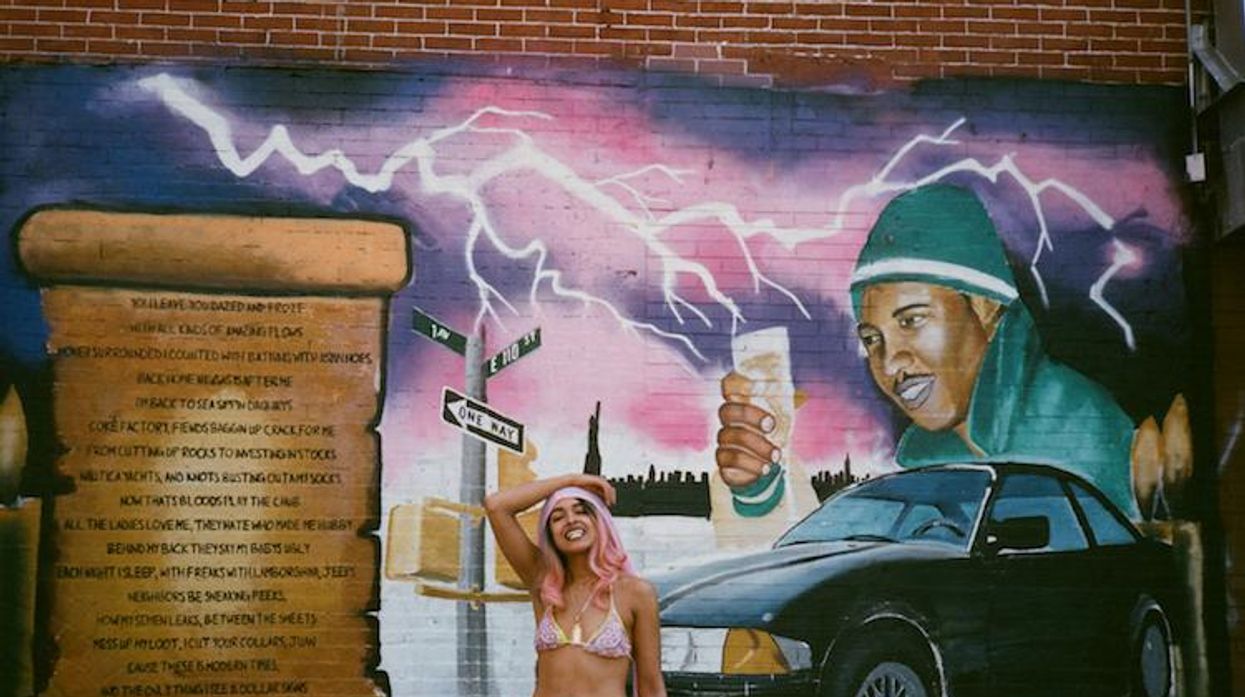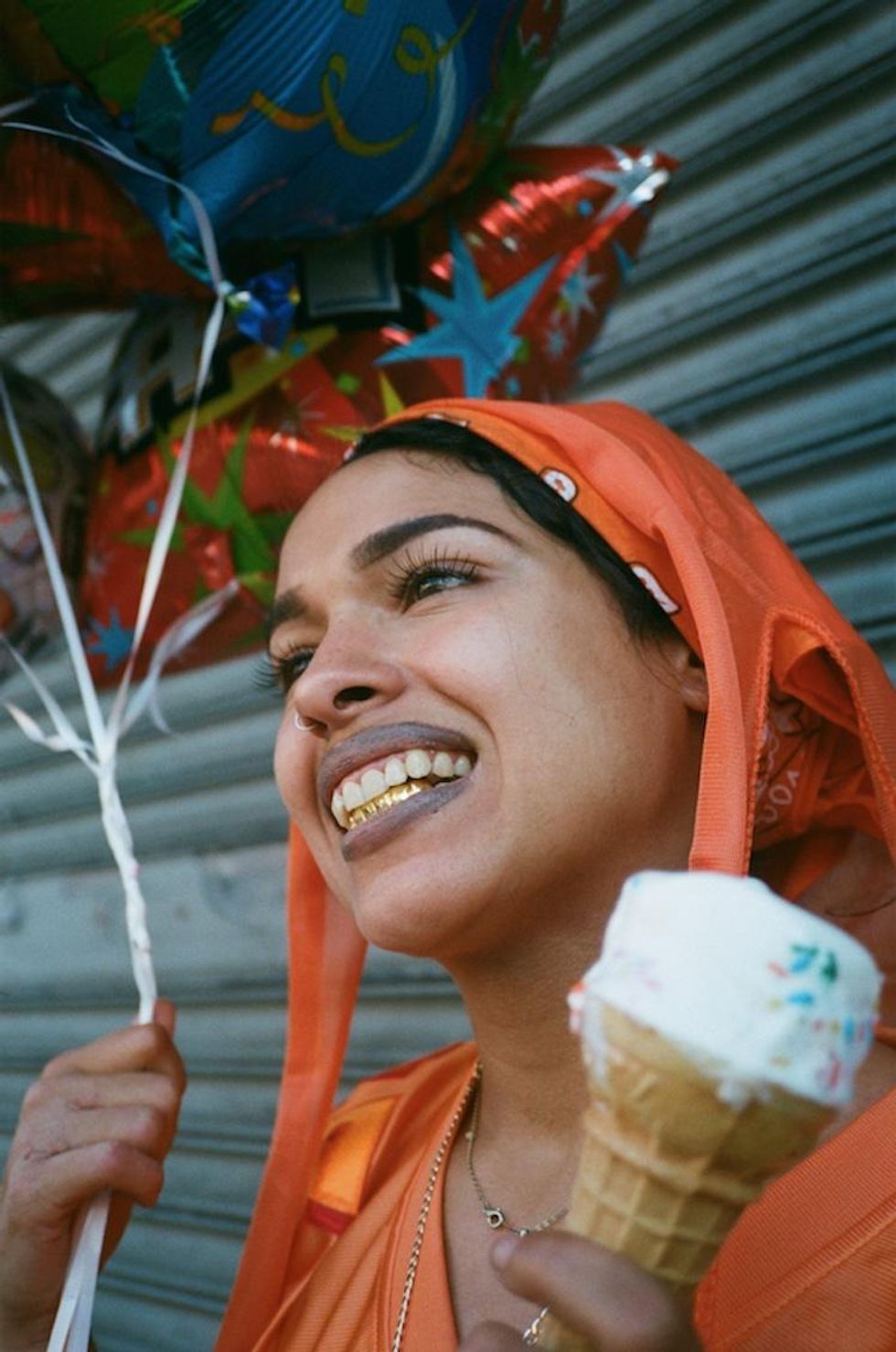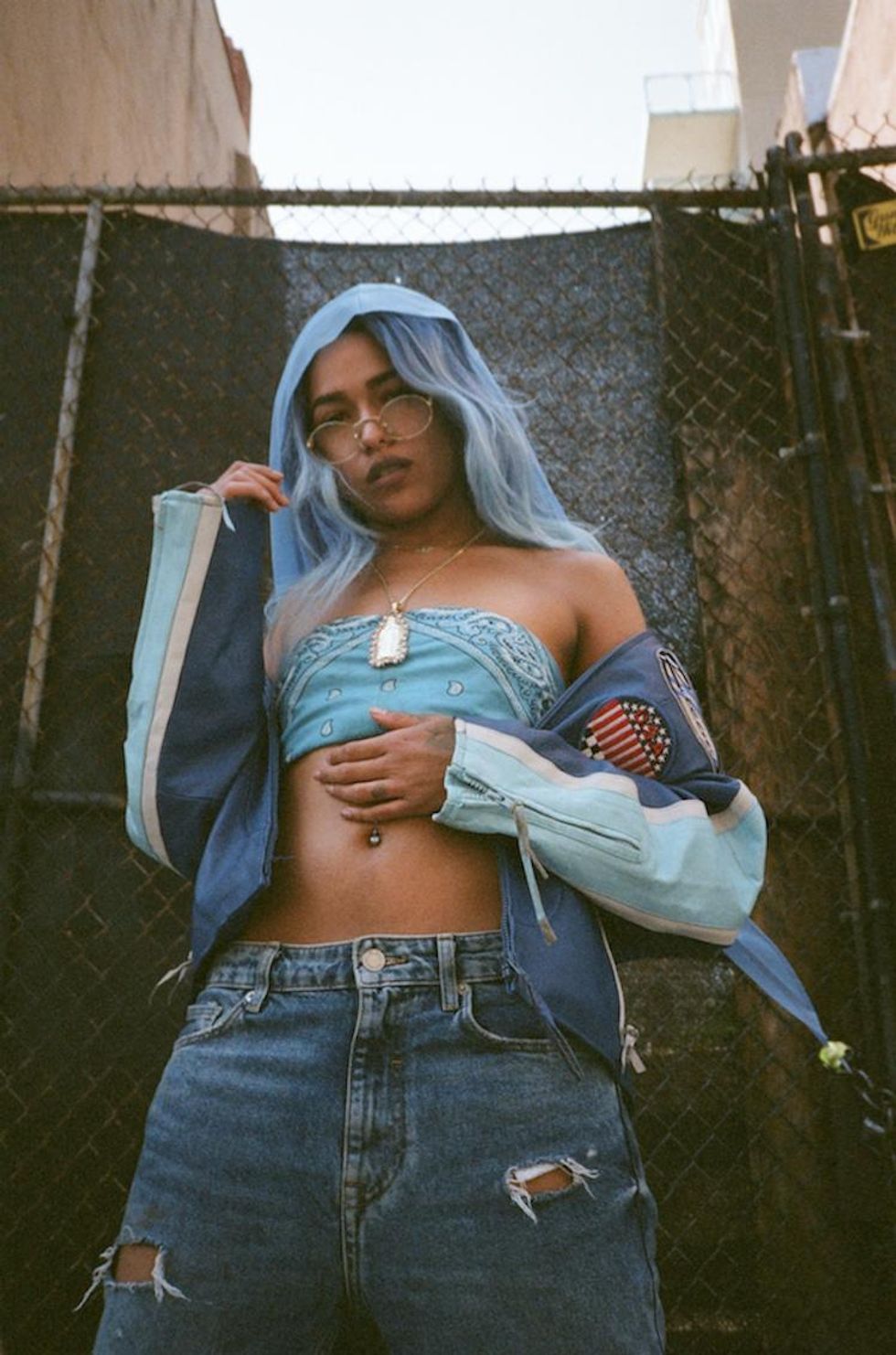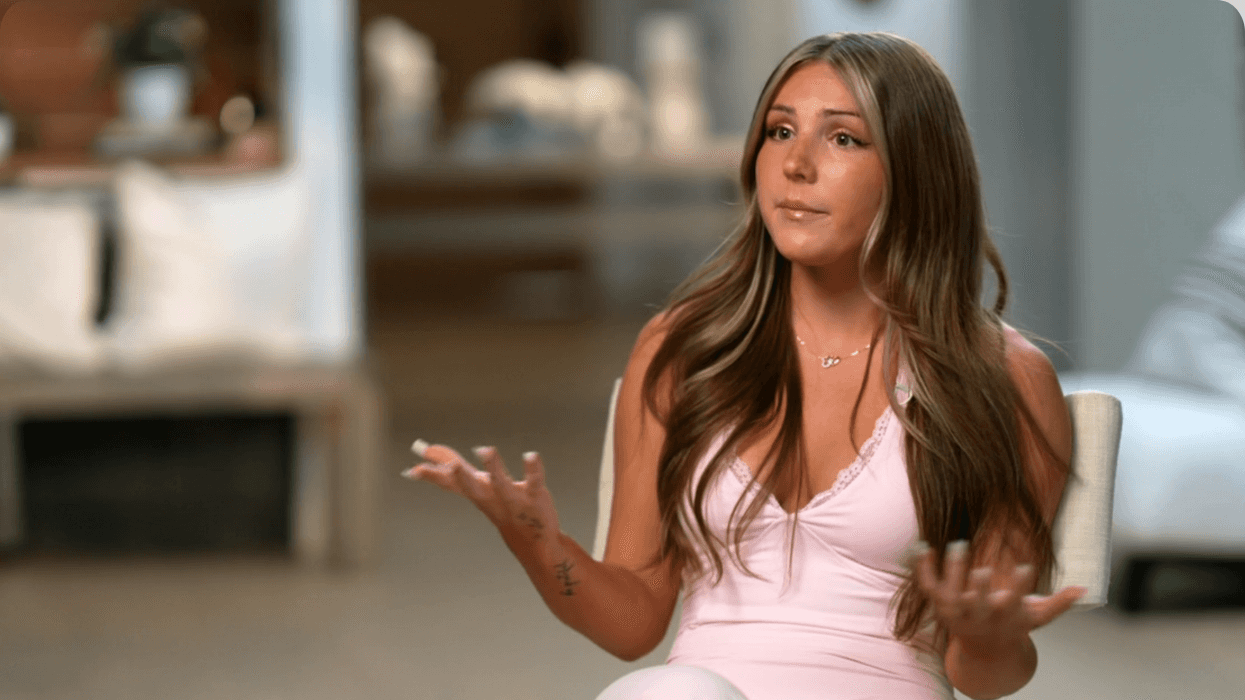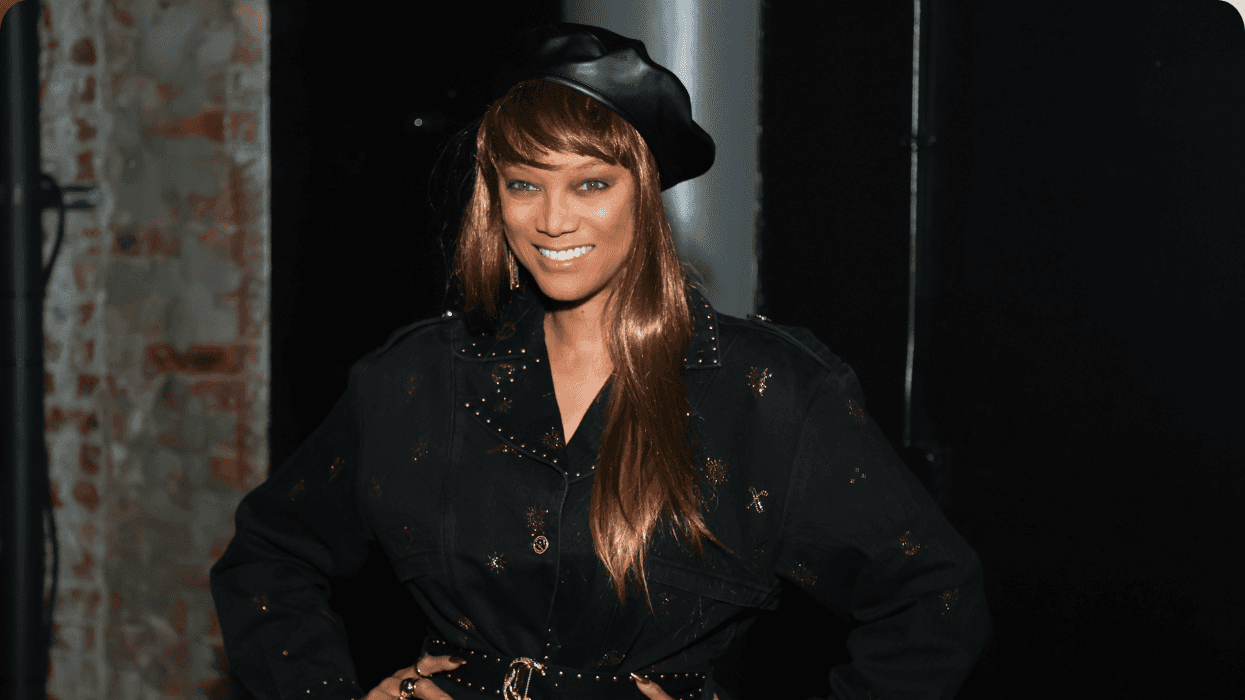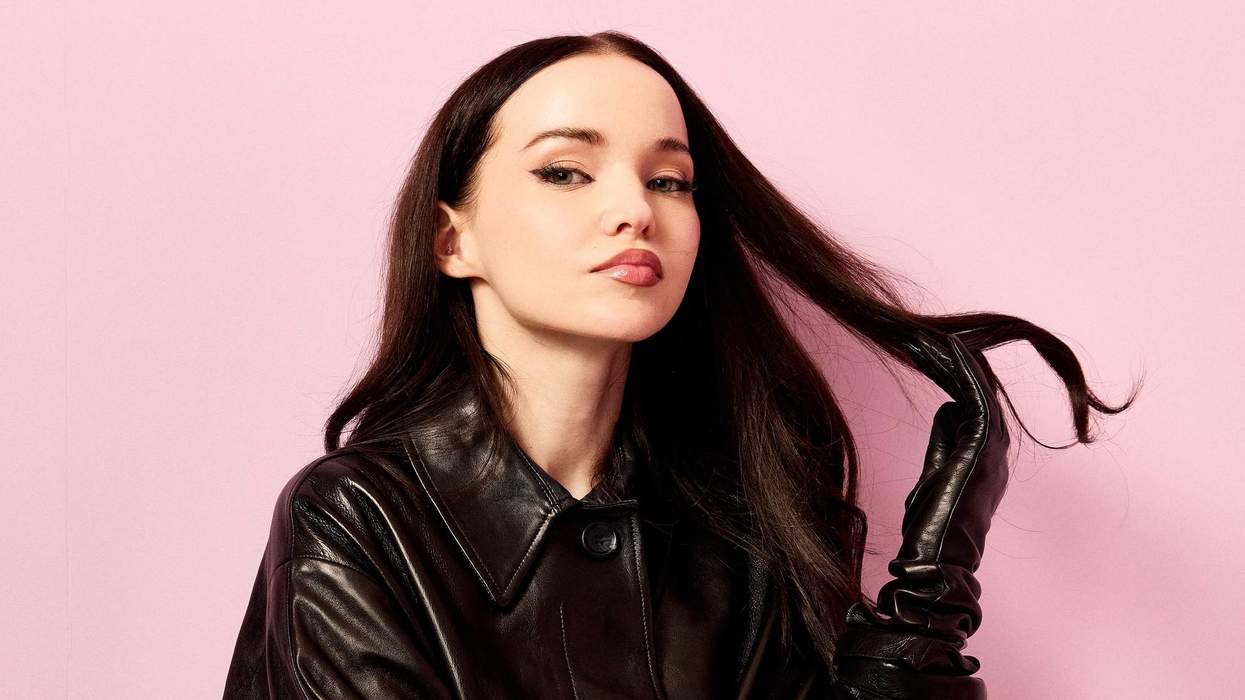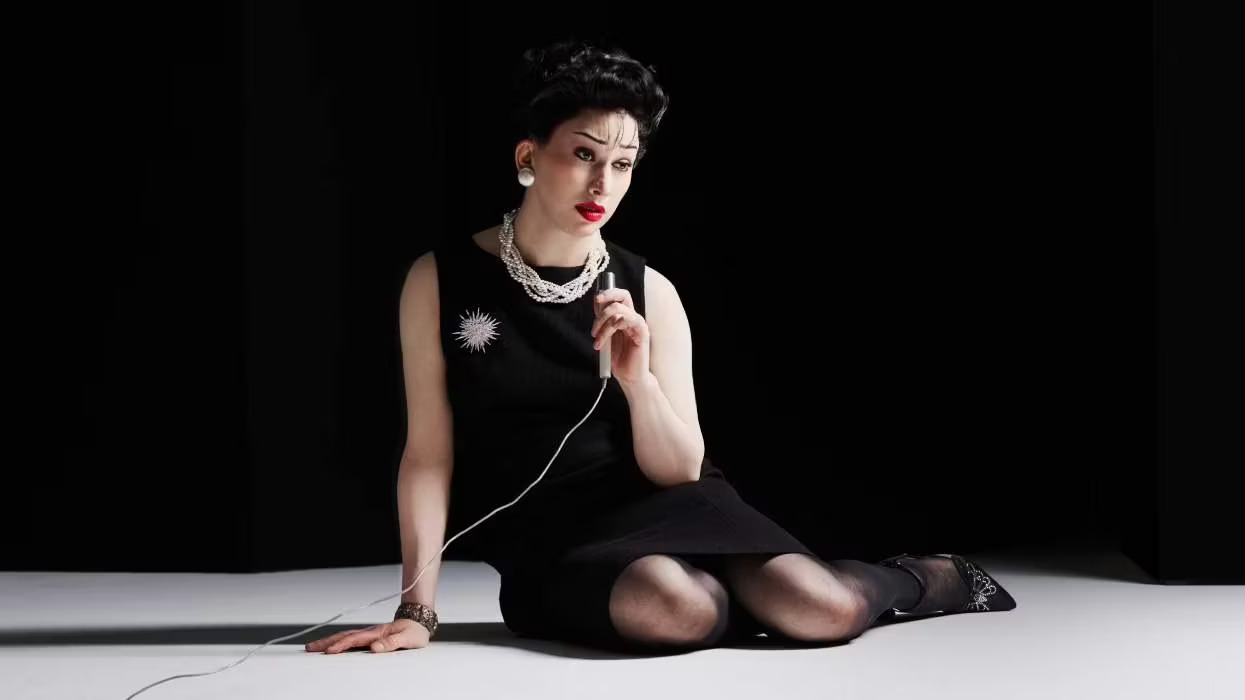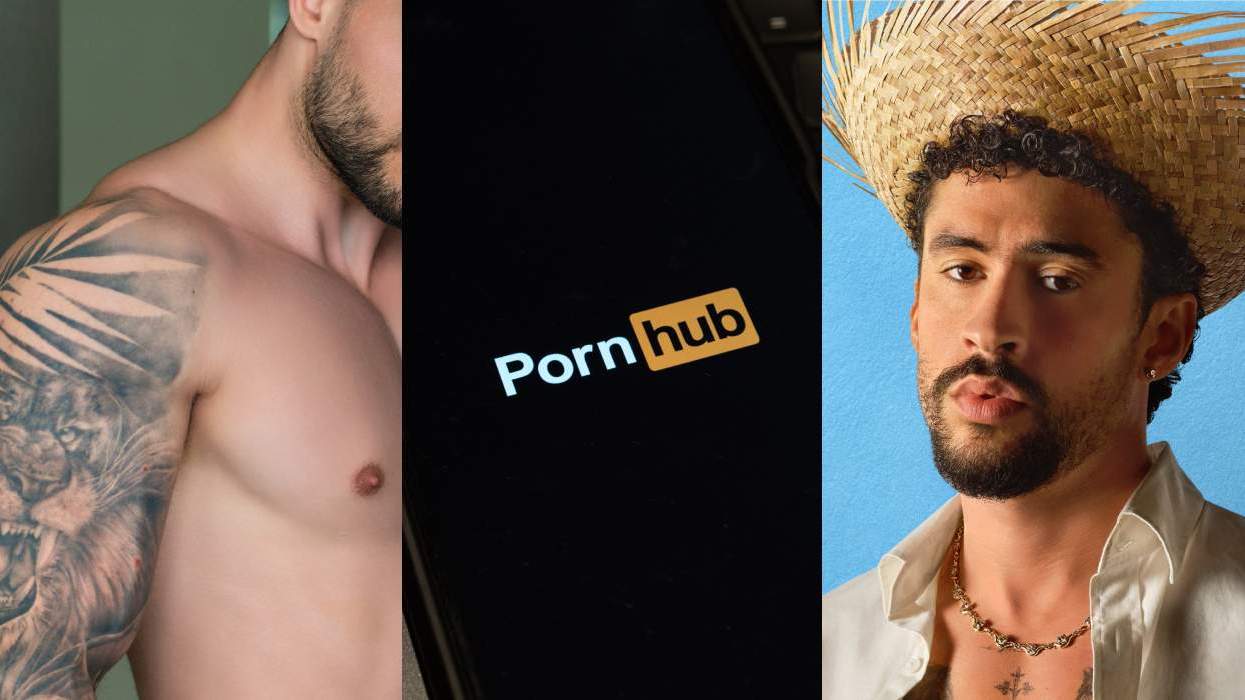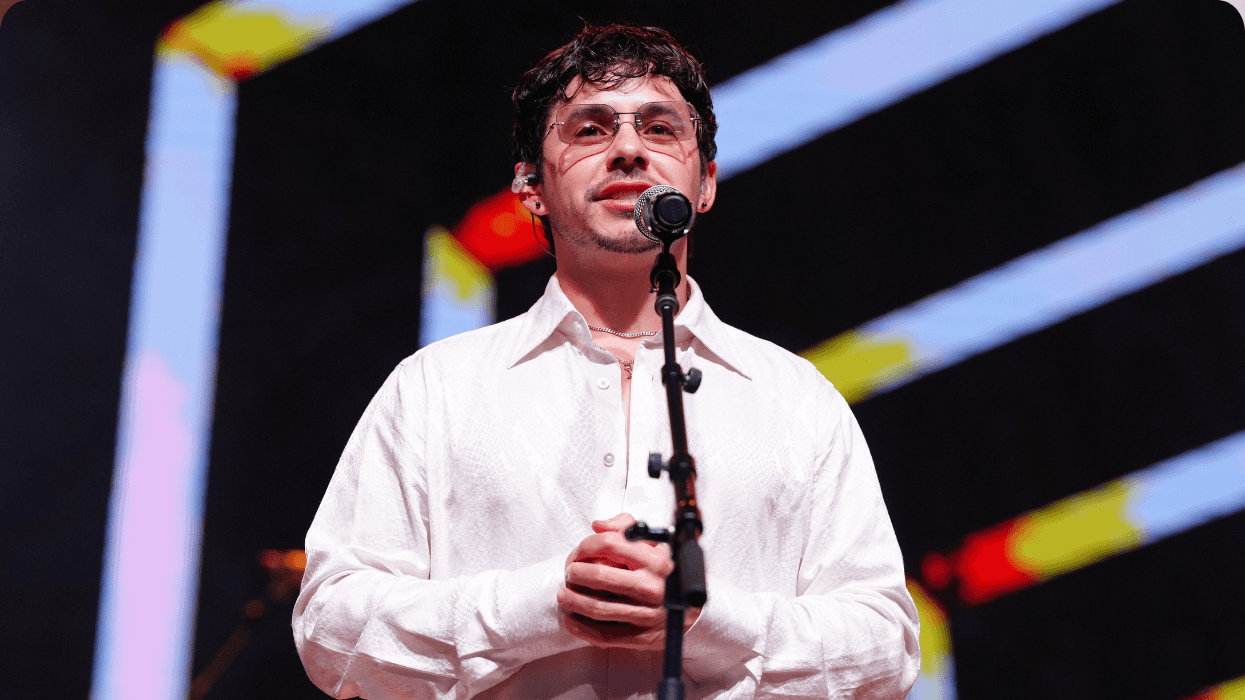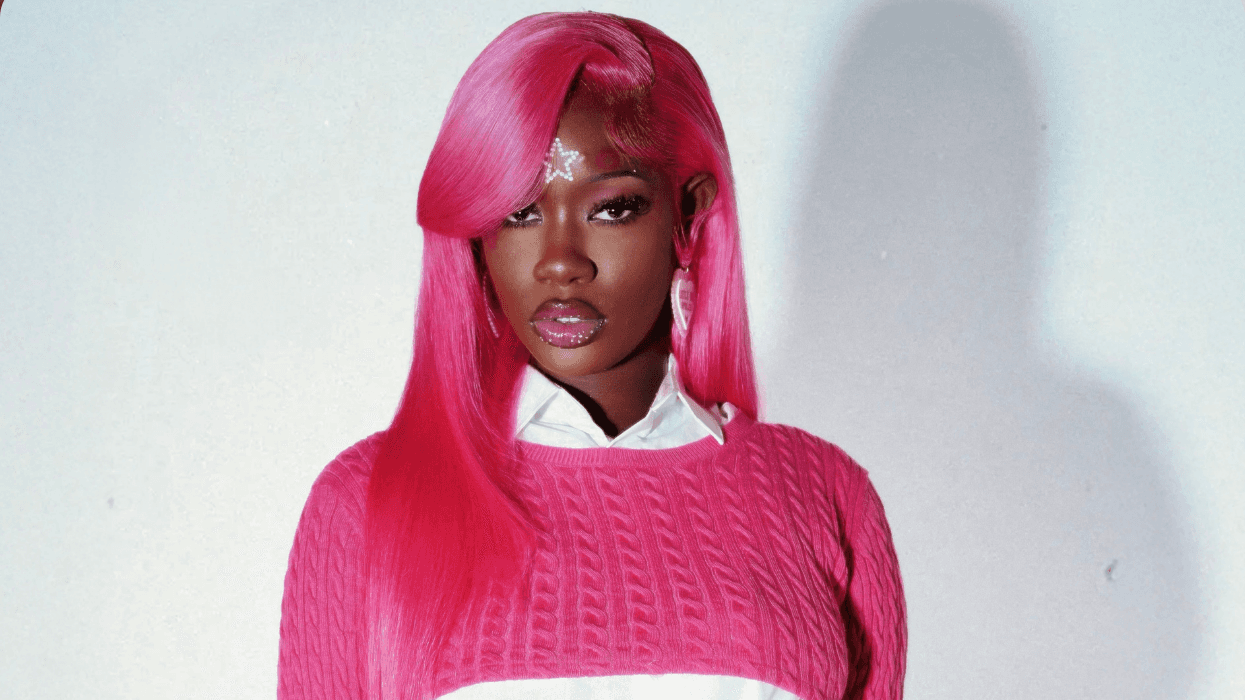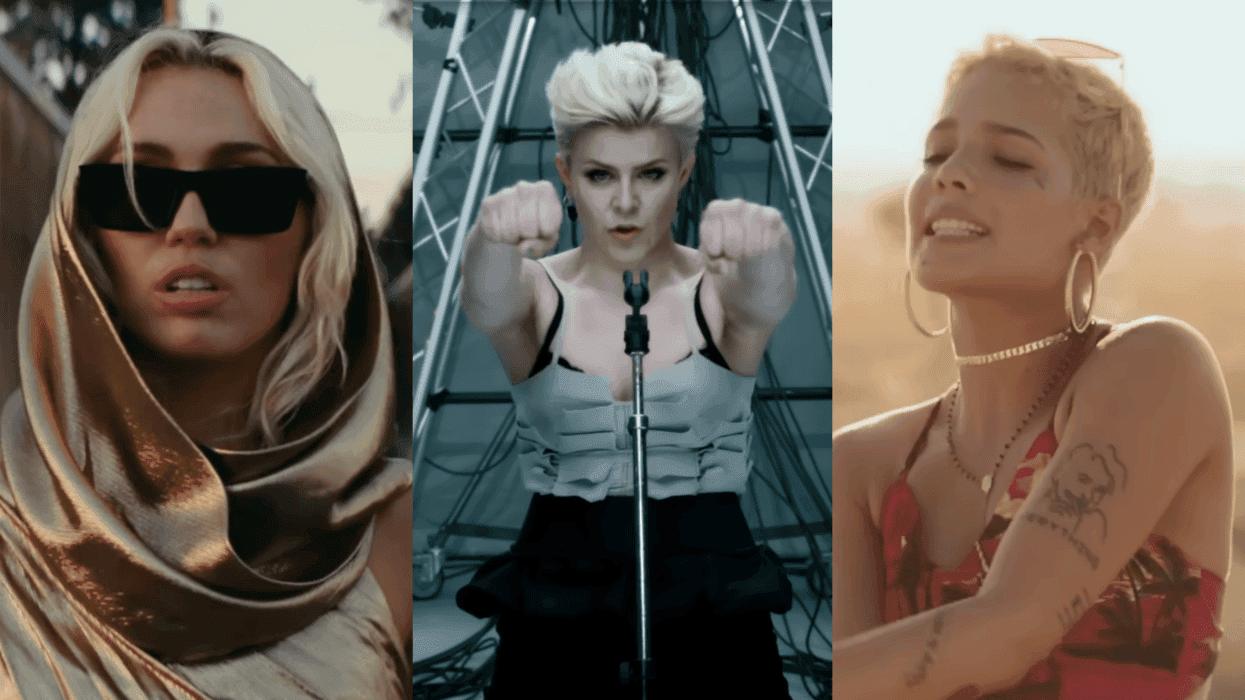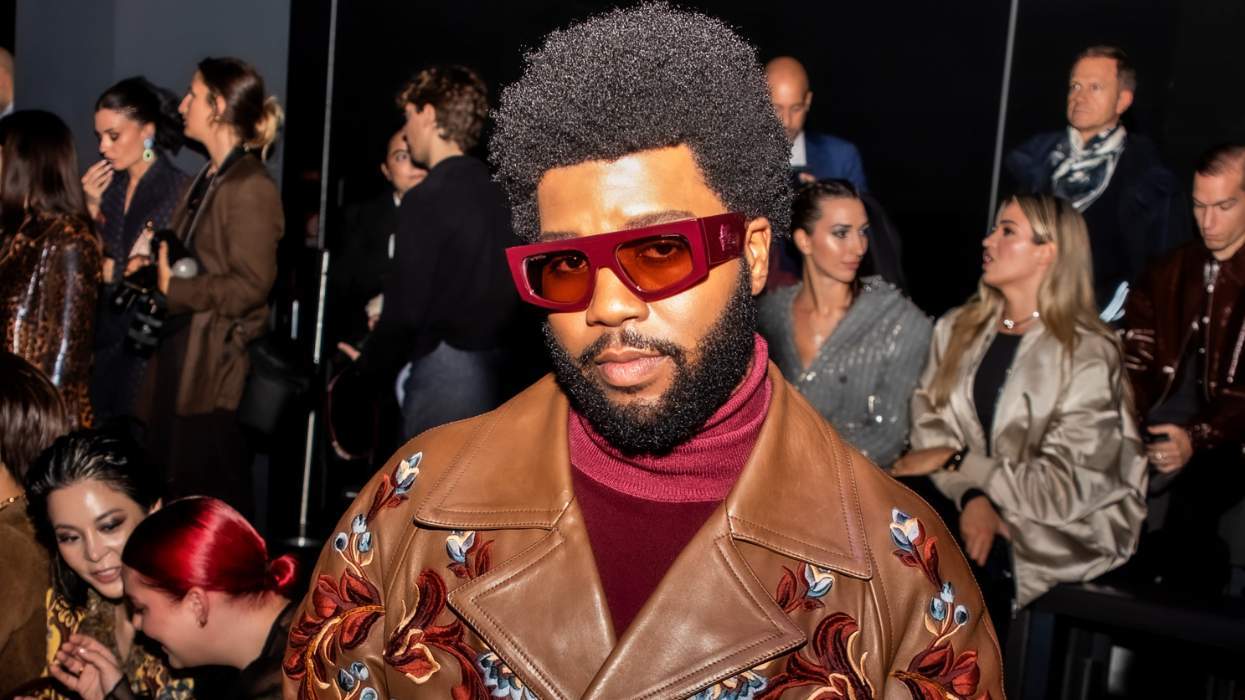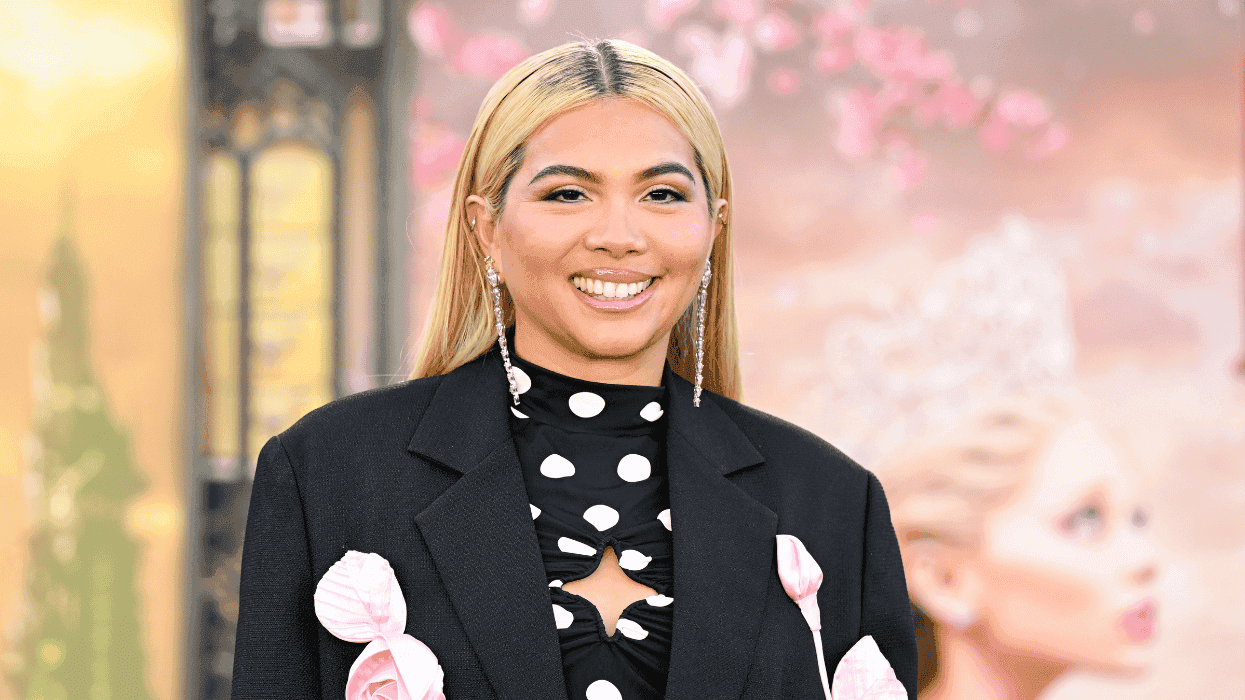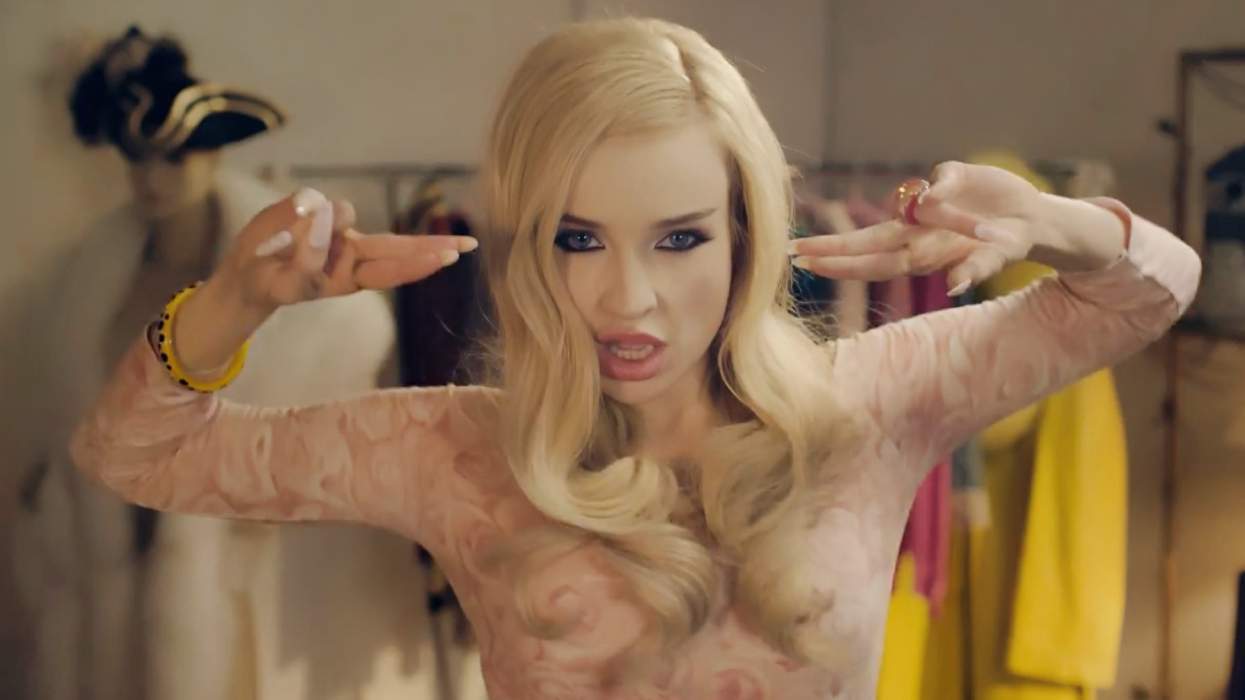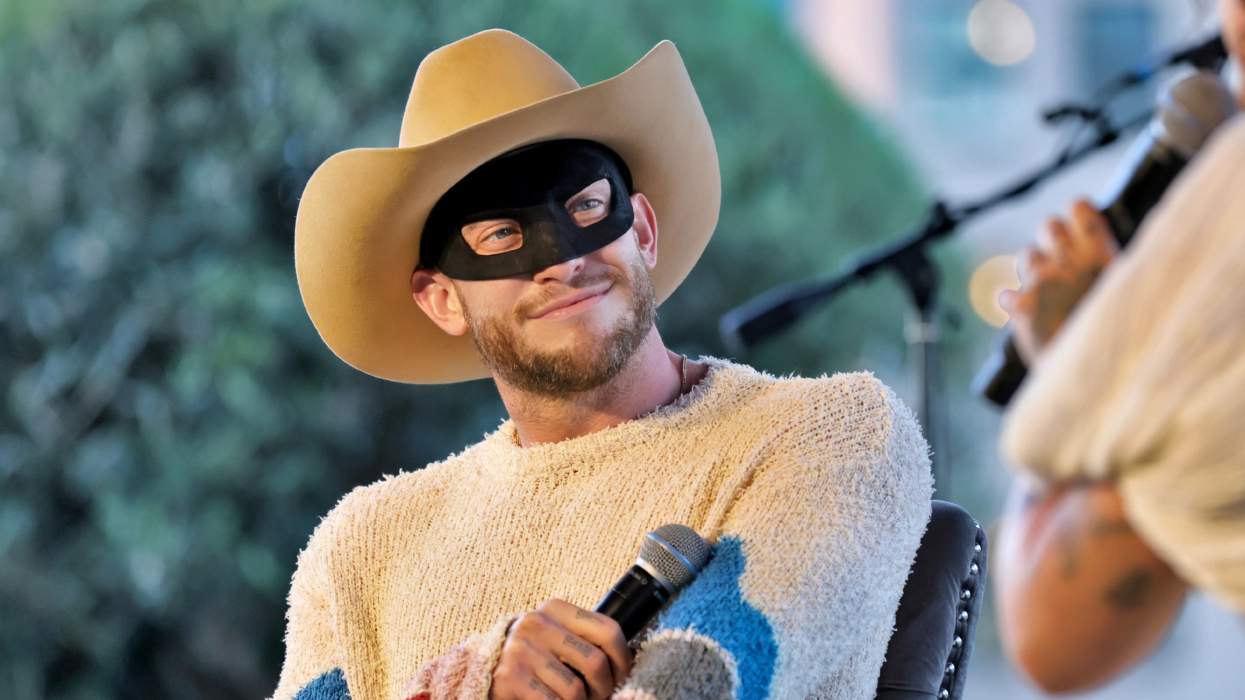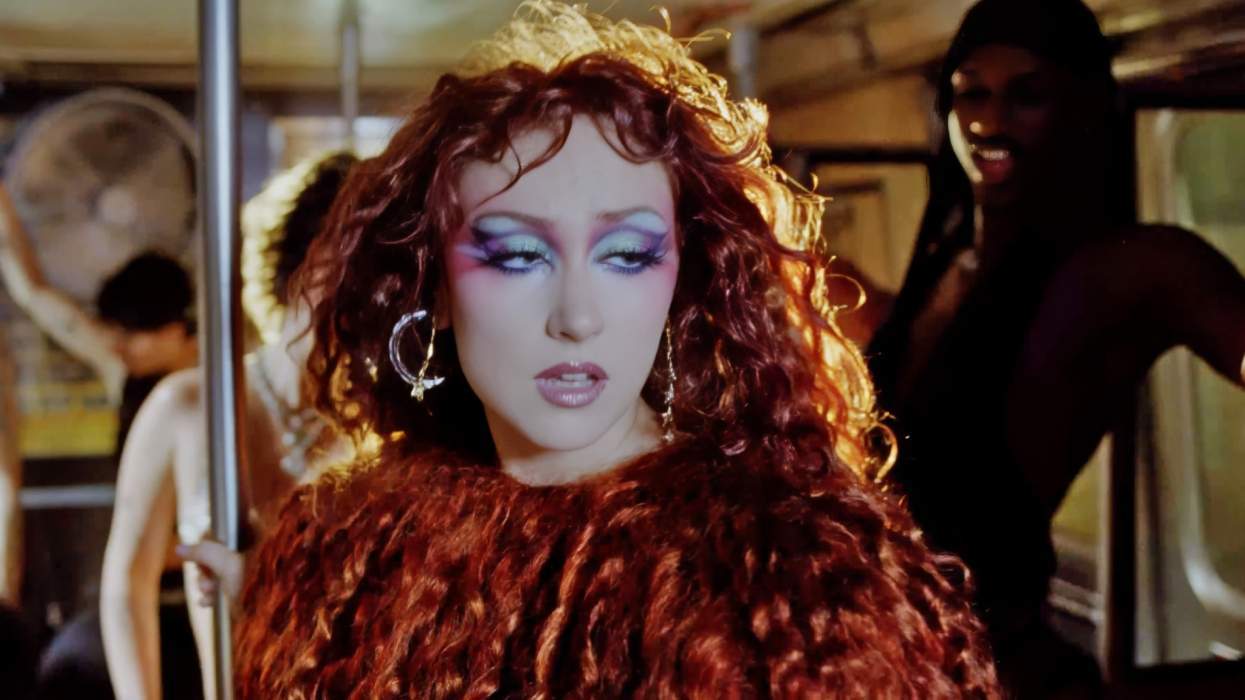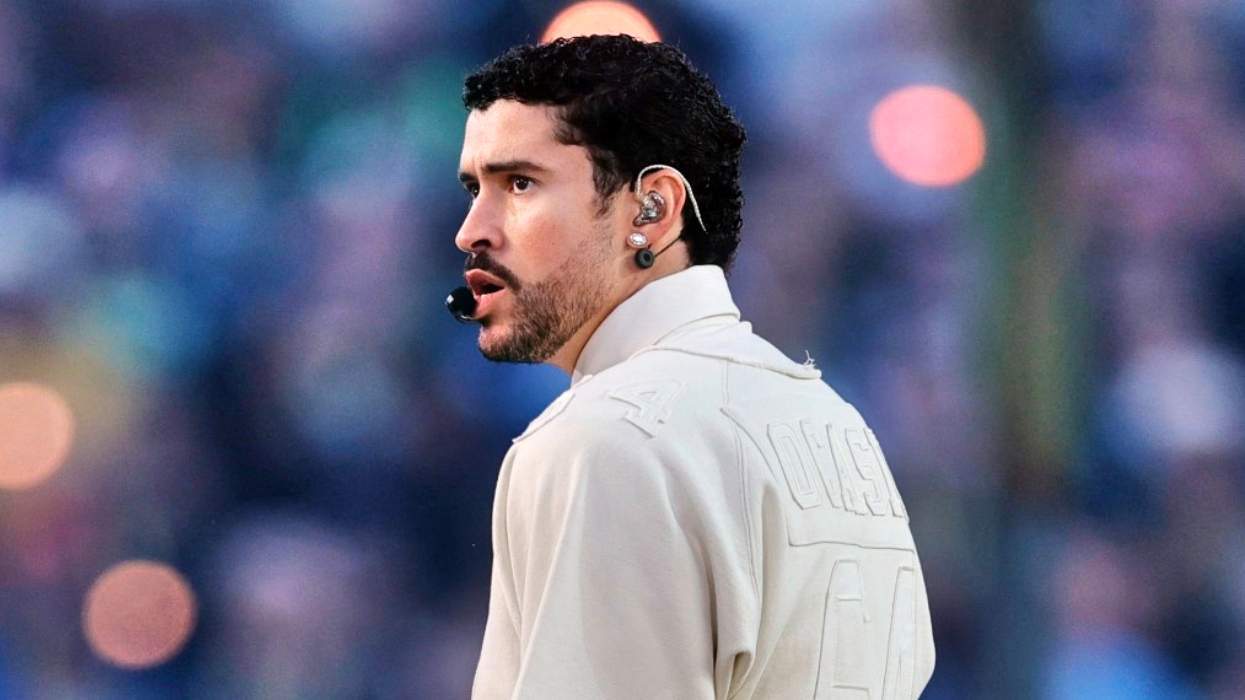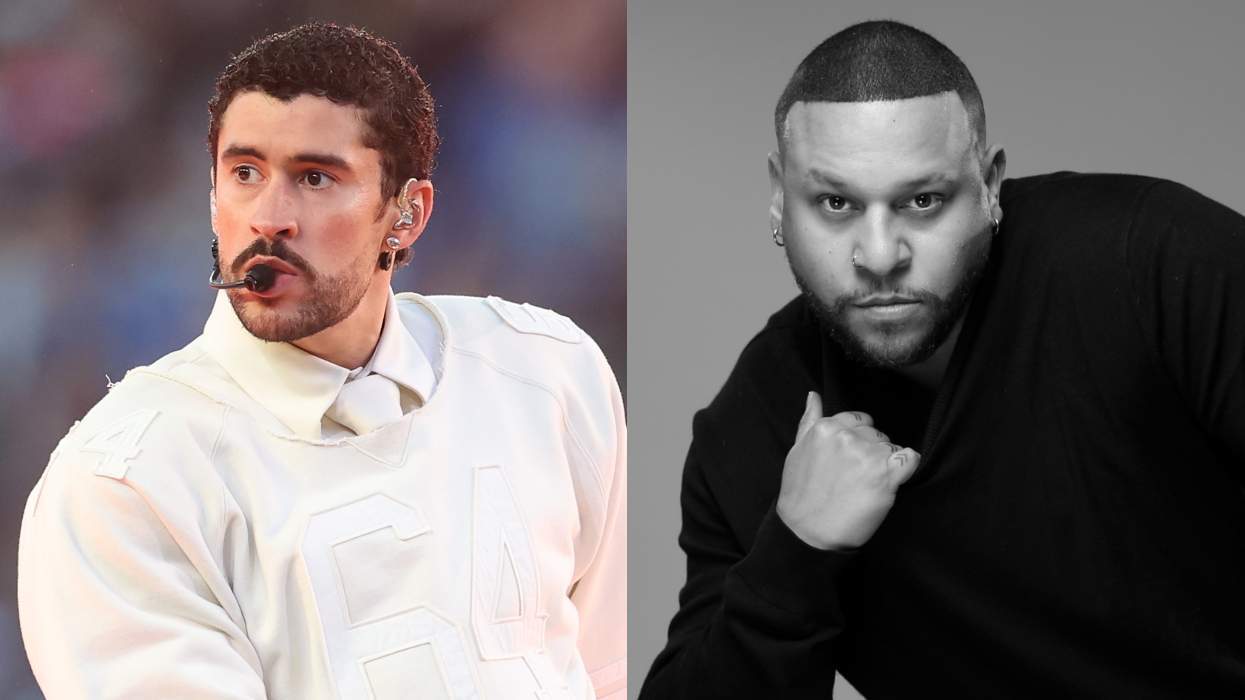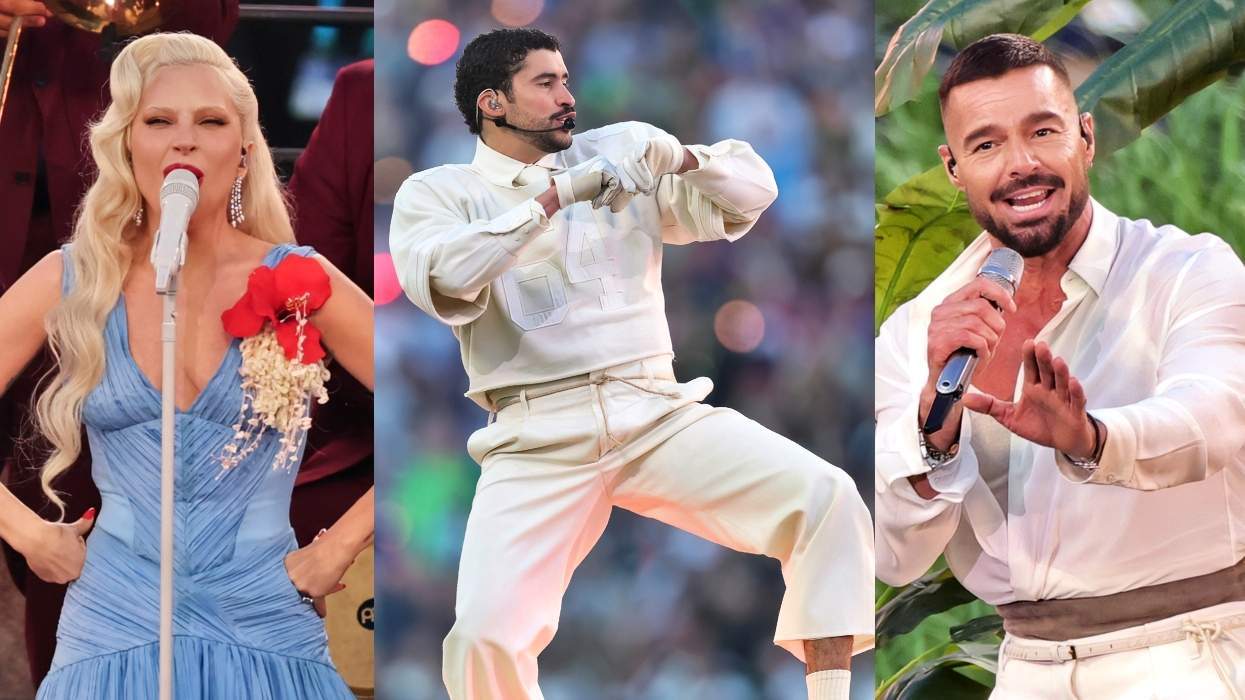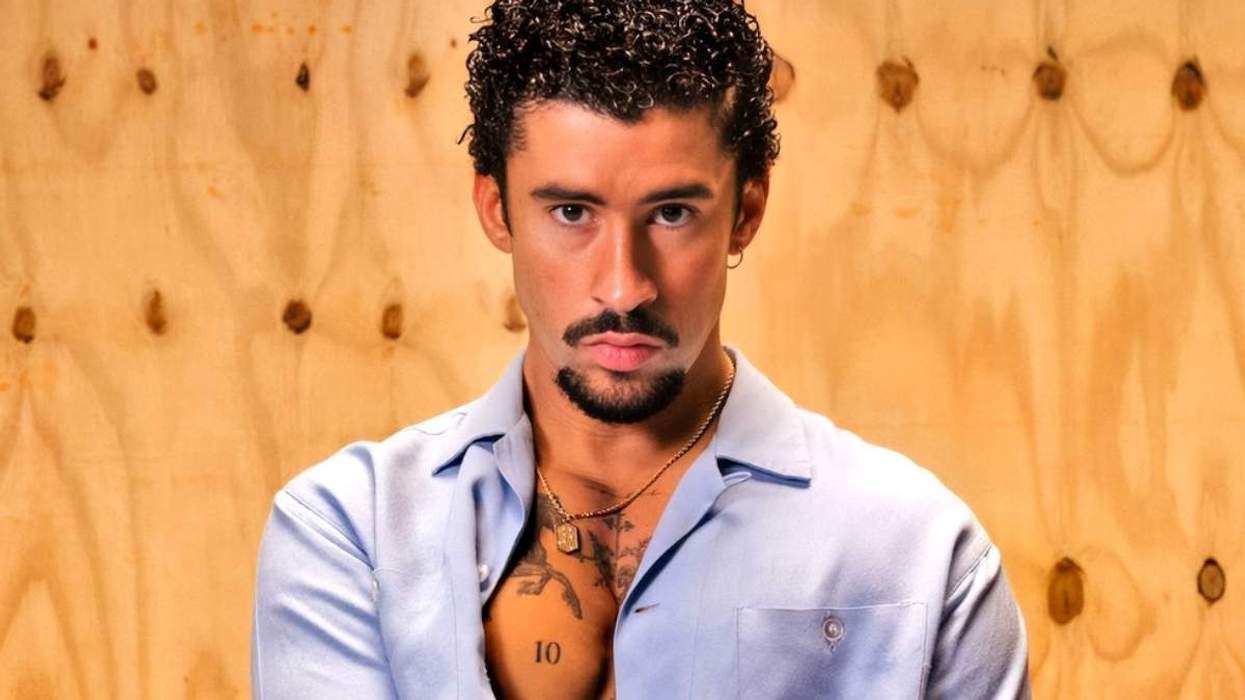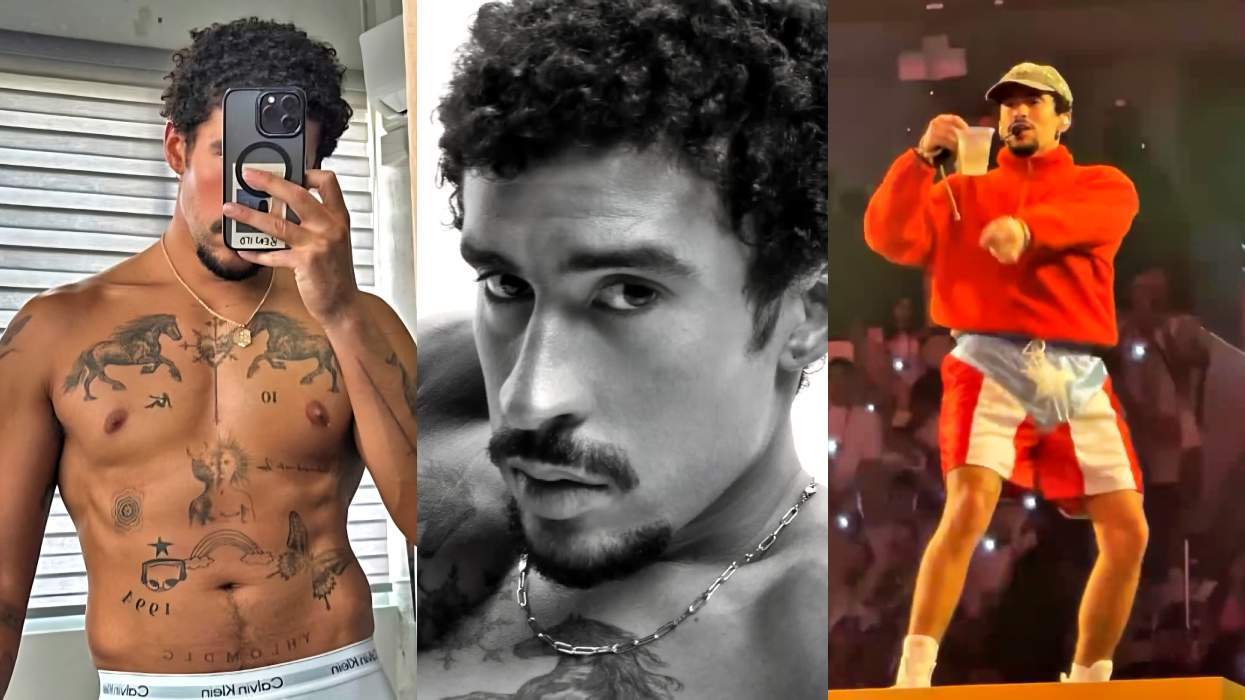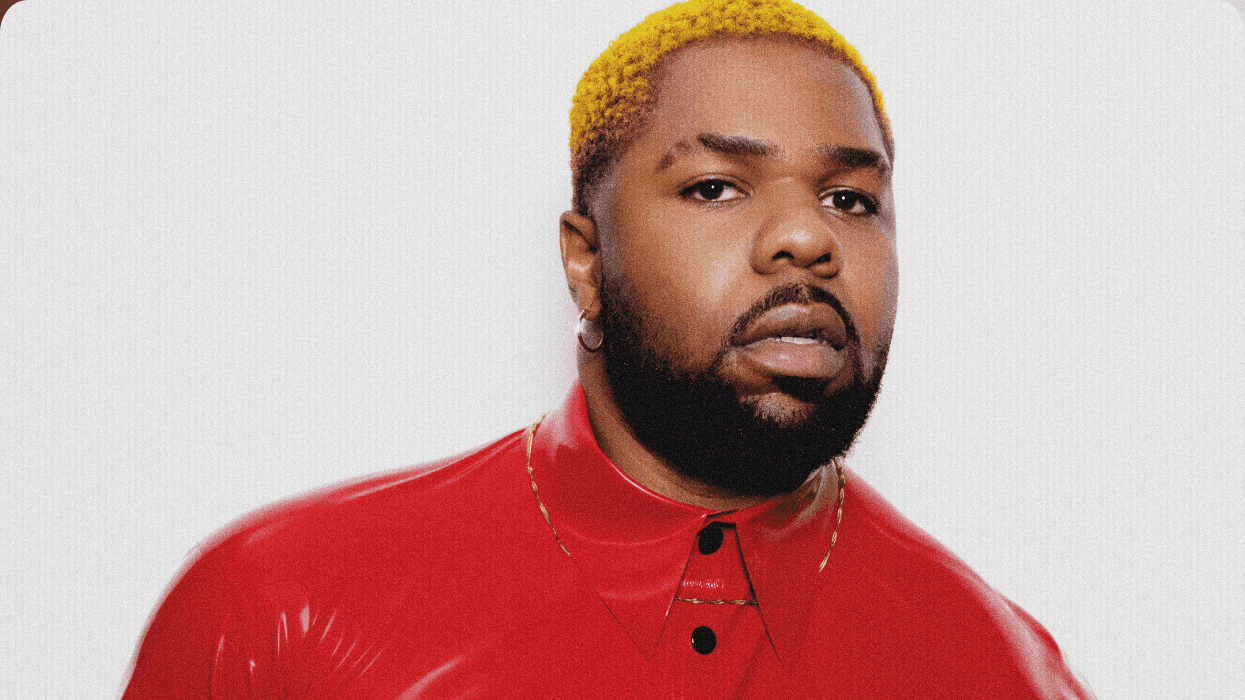When Harlem rapper Princess Nokia dropped her breakthrough 2016 banger, "Tomboy," the world finally took notice after she'd spent years performing in the underground queer circuit. Serving aggressive hip-hop production and relatable references to her "little titties and phat belly," Nokia's single catapulted her to global stardom and ushered in her 1992 mixtape--a raucous project that reflects on her Puerto Rican, Taino/Arawak and Cuban background.
Related | Puerto Rican Rapper Princess Nokia Launches Fundraiser For Hurricane Maria Recovery
The following year saw Nokia touring the world, spreading her message of self-love and dropping music videos for 1992 highlights "Brujas" and "Kitana." Now, the New York rapper has rereleased 1992 as an expanded 16-track effort, featuring fully remastered versions of its original material, as well as eight brand new songs. Whether she's outlining the "ABCs of New York" or declaring she's the "G.O.A.T.," Nokia's proven herself as a much-needed feminine force in hip-hop.
Fresh off the release of Nokia's "Bart Simpson & Green Line" music video, we caught up with the burgeoning emcee to reflect on her queer NYC background and creating positive music for outsiders.
OUT: The beginning of your career was really rooted in the queer New York.
Princess Nokia: I grew up as a New York City kid, very close to the queer community. Being a queer kid and going out--that's been one of the most important parts of my life and really how I started making music. Me and my friends were downtown kids that vogued, that went to balls, that hung out at the Pier, Union Square and the Village. We were just those brown gay kids that liked to go to raves and parties--that liked to give looks, fuck shit up and do the most. That was such a special part of being a young person in the city. We had the most fun, while being so different and unique.
I remember you performing in 2014 at a Chicago-based queer party, called Total Therapy.
When I started making music, the circle I'd already been running in was the gay nightlife scene. All the nightlife people were coexisting and really making time for each other. In the early days, the Total Therapy team reached out to me and were already working with a lot of really amazing, important queer artists from New York City. The list goes on. We all have a place in that world. My first love was New York City nightlife, and I remember those rave nights. They were something else--really special.
Photography: Milah Libin
How has the LGBTQ community impacted your music today?
That has always given me a foundation in strength. Coming from that background has given me a place to be a true individual, to truly express myself, to truly be confidently rooted in my differences. I think bringing that into the hip-hop world just makes me go, I don't give a fuck. I'm fabulous. I know who I am, I like what I like and I do what I do. I'm wonderful and I'm comfortable with myself. I got that strength from the [LGBTQ] world, where it's okay to be different. Bringing that energy into music takes the pressure off of living up to something, when I already know I do.
Right when your 1992 single, "Tomboy" was taking off, you gave an incredible performance at Ladyfag's Holy Mountain, which is a New York-based queer party.
That performance was a moment, and right before 1992 popped off. I grew up loving Ladyfag, Sophia Lamar and all those girls. I'm not a clubber and I don't go out like I used to, but my ties to the community are deep-rooted from many years ago. When Ladyfag asked me to her Holy Mountain party, I'm like, Okay cool, I haven't done something like this in a minute. I get to the function and it's real late, but all my mothers who used to look after me like Raul Lopez took me to the green room. No one had heard my new music, but I remember smoking a cigarette backstage and then I was like, Alright I'm gonna hit the stage.
I swear to God it was out of body--it was fantastic. All these beautiful bodies and me just ripping it and showing "Tomboy" and 1992 love. That was my first time showing the album and the response was incredible. People loved it and I was so proud. It was such a special moment to me, and it took me back to all those times with those special people in the LGBTQ community that helped me understand so much about myself and help me enjoy life so much more. When it was a 360 and all came full circle at Holy Mountain, I was just living the New York gay dream. I felt I'd done something right.
Why do you think "Tomboy" resonated with so many listeners?
I think it was just a song that was real--it was different. It gave the world something that women like myself, who're really normal, laid-back women, could resonate with. It was rock 'n' roll--it was empowering. The whole vibe of the song--"My little titties and my fat belly"--that's real punk rock.
I've always seen you as someone that makes hip-hop for outsiders. Do you feel the same about your work?
I still feel like an outsider. I've always been an outsider and I will always be an outsider. I know what it's like to live alone and be on some different shit, so the fact that I can translate that into a universal language and bring it into a world it's not supposed to fit into--that's powerful. That's really saying, I don't give a fuck. And a lot of other people don't either, but they can laugh at themselves. They don't take things so seriously. They have a good time and a better, more positive perspective. That's so important.
Photography: Milah Libin
Talk me through the larger concept of 1992 and how your album art relates.
You know how there's some people you catch at the club sitting on a fucking couch? And there's some people you'll catch at a party with a whole bunch of fucking people? I'm not cool enough for any of that shit. I don't even really have friends, so I'm just hanging out at the park, talking to strangers and smoking a spliff in the middle of a court while there's maybe a babysitter with some kids 100 feet from me. The whole image of casual comfort--just me in my element. I love a comfy big t-shirt and big pants. I love the colors of the city and being outside. I love the essence of being in public, exploring and enjoying the view. That's who I am.
How does this attitude translate into your music?
I think there's a general motif of there being so much comfort in relaxation, nonconformity and uniqueness--being cool with who you are in the world, even though it's a really fucked up place. 1992 is me trying to be an eternal optimist. I think there's optimism in everything I do, no matter how dark or funny I become. There's always a sense of humor with an air of artfulness and thoughtfulness in my music. When you listen to it, it's alive and cinematic. The album has 16 songs and it's about an hour long. I like to listen to it front to back--I like to ride my bike and listen to it just to enjoy life. I try to make a good, cinematic project that has depth and can take people places.
Listen to Princess Nokia's 1992, below.


